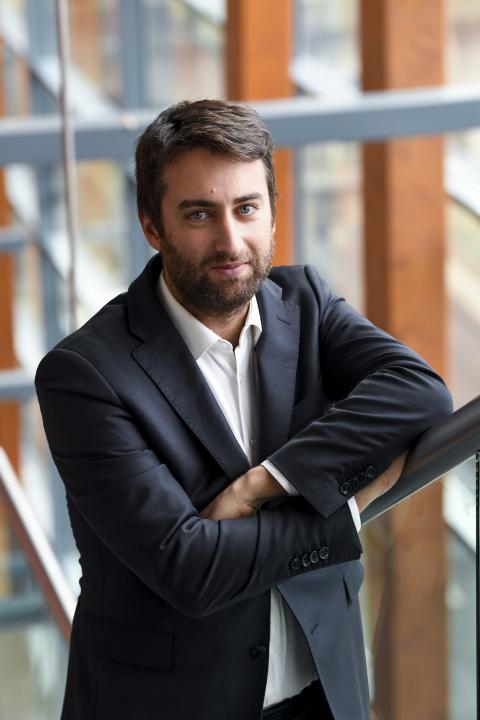European Economic
and Social Committee
Matthew Caruana Galizia: "I try to make sure that my mother did not die for nothing"
Interview with Matthew Caruana Galizia, investigative journalist and director of the Daphne Caruana Galizia Foundation in Malta.
"I work at the Daphne Caruana Galizia Foundation in Malta, which is named after my mother, Daphne. She was a journalist for 30 years, investigating high-level corruption and social issues in Malta, and she was murdered during the course of one of her most important investigations, on 16 October 2017. I witnessed the murder. And ever since then, together with my family, we have been fighting for justice for her".
EESC info: Has the situation for journalists improved since your mother's murder?
Matthew Caruana Galizia: For journalists in general, there is a new recognition within the Commission of the importance of investigative work and of the severity of the problems we face. We are on the right track, but I don't think that the situation has improved enough for journalists doing investigative work.
Journalists are certainly becoming better at investigating organised crime, corruption and money laundering. They are becoming more effective with each new collaborative investigation.
The Pandora Papers is the latest one, an incredibly effective, well-structured investigation. The people working on that did an incredible job with very few resources, but the reason our work has not become easier is because, globally, our authorities are struggling to keep up in the fight against corruption.
We have been slow in developing new tools globally that can be used to fight organised crime and corruption. And yes, this has continued to mean that journalists who publish evidence and reports about corruption and organised crime are exposed to serious risk.
How can civil society support investigative journalists?
Very large and well-funded civil society organisations are in a position to finance investigative work and support the work of freelance journalists on some important investigations. Human rights organisations are speaking up about violations of the right to freedom of expression and about the use of legal harassment to silence journalists.
My family has received a huge amount of support from civil society organisations, and if it were not for that support, we would have not made the progress that we've made up to now in fighting for justice for my mother. But of course, those civil society organisations, in turn, depend on funding from European institutions, European bodies, from private citizens, from membership, things like that. NGOs are vilified and given a bad name. They're targeted themselves. So we also have to protect them, too.
What more can the European Union do to demonstrate its commitment to freedom of the press?
I do believe that with the change in leadership at the European Commission, journalists and people who work in the field of human rights, defenders of the right to freedom of expression, have an ally in the Commission and we also have an ally in the European Parliament, which has just created a prize named after my mother, the Daphne Caruana Galizia prize for journalism. This shows clearly one of the EU's most important institution's support for investigative journalism, in a real, effective, material way.
The institutions, I believe, are held back by the Member States of the EU, which are, for example, failing to implement the Whistleblower Directive and failing to implement the Anti-Money Laundering Directives. There are some countries in the European Union, for example, that do not have public registers of the ownership of companies. Cyprus is one of them. And this makes it harder for journalists to do their work.
I really want to make sure my mother didn't die for nothing. That's really my number one motivator, that lessons are learned from my mother's murder, that the same thing doesn't happen again. I mean, it has happened again and again, which shows how far we have to go. Ján Kuciak was murdered, a journalist in Greece, another journalist in the Netherlands. So we do have a long way to go, but we're on the right track. We just need to keep pushing.
